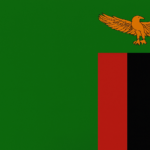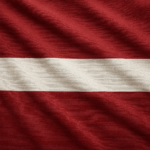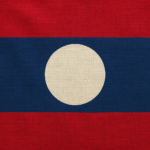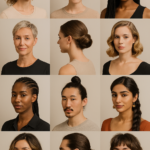
Qatar (pronounced KAH-ter) occupies a small peninsula that extends into the Persian Gulf from the east side of the Arabian Peninsula. Saudi Arabia is to the west and the United Arab Emirates to the south. The country is mainly barren.
Qatar was once controlled by the sheikhs of Bahrain, but in 1867, war broke out between the people and their absentee rulers. To keep the peace in the Persian Gulf, the British installed Muhammad ibn Thani al-Thani, head of a leading Qatari family, as the region’s ruler. In 1893, the Ottoman Turks made incursions into Qatar, but the emir successfully deflected them. In 1916, the emir agreed to allow Qatar to become a British protectorate.
Oil was discovered in the 1940s, bringing wealth to the country in the 1950s and 1960s. About 85% of Qatar’s income from exports comes from oil. Its people have one of the highest per capita incomes in the world. In 1971, Qatar was to join the other emirates of the Trucial Coast to become part of the United Arab Emirates. But both Qatar and Bahrain decided against the merger and instead formed independent nations.
Qatar permitted the international forces to use Qatar as a base during the 1991 Persian Gulf War. A border dispute erupted with Saudi Arabia that was settled in Dec. 1992. A territorial dispute with Bahrain over the Hawar Islands remains unresolved, however. In 1994, Qatar signed a defense pact with the U.S., becoming the third Gulf state to do so.
Qatar has the largest Sports Dome in the world! It is also the most technologically advanced. (It can be found at Aspire Academy in Doha)
Many women in the Gulf, say they prefer Qatari men. They are considered to be gentle, romantic, well dressed, and completely giving.
Qatar’s goal is to be the central transit point for Asia.
Qatari men’s head-dress (Ghitra) is usually white and have two black tassles. (These are nicknamed tea-bags). The way that the Qatari style of wearing the Ghitra is also known as ‘The Cobra’.
Qatar used to share it’s currency with Dubai. Yes, it was called the Qatar and Dubai Riyal.
It is NOT true that you must cover your body up in Qatar. You can wear a bikini at the pool or beach, you can wear short shorts, and you are free to show of your fashion.
Qatar is the first country in the Gulf to fine Pedestrians for not walking correctly on the pavement. Those who put their lives at risk are fined QR200.
Qatar has the world’s largest Gas Reserves. It is the main reason why Qatar is developing into such a modern nation.
Qatar is one of the safest countries in the world! It’s true, it’s safer than Japan for example.
Qatar’s flag used to be red! The story goes that a manufacturer was supposed to create a batch of flags. However an experimental red dye was used. When the flags were all put up, they turned a Maroon colour. The country decided to adopt it. This shade of Maroon is now known as Qatar Red.
Doha is the capital of Qatar.
Qatar is the first country in the Middle East region to support Digital Television! Yes you can watch DVB-H signals on your mobile phone.
Each Ghitra has it’s own special meaning. A white one means pure, a red and white one means patriot, and a black and white one means freedom. There are other colours that you can now find in many shops around the world, they are often used as scarves. Other colours have no representation. (Some shops call these Desert Scarves)
In June 2013, the Taliban opened an office in Doha, Qatar, and its representatives held a press conference with an international media contingent. The U.S. said it would begin long-delayed peace talks with the group. Afghanistan was expected to do the same, but instead said it would not engage in any dialogue with the Taliban, saying such discussions lent the militants credibility.
In June 1995, Crown Prince Hamad bin Khalifa al-Thani deposed his father, primarily because the king was out of step with the country’s economic reforms. The emir was not stripped of his title, and much of the power was already in his son’s hands. The new emir lifted press censorship and instituted other liberal reforms, including democratic elections and women’s suffrage (1999). In 2003 Crown Prince Jassim, who declared he had never wanted to be king, abdicated in favor of his younger brother, Prince Tamim.
Qatar is the home of Al Jazeera, the immensely popular and controversial Arabic satellite television network.
Qatar introduced its first constitution on June 9, 2005. It guarantees freedom of expression, assembly, and religion and calls for a 45-seat parliament. Thirty of the seats will be filled in democratic elections; the emir will appoint the remaining seats.
Sheik Abdullah bin Khalifa Al Thani resigned as prime minister in April 2007. The emir named former foreign minister Sheik Hamad bin Jassem al Thani as his replacement.
On June 25, 2013, Emir Sheikh Hamad ibn Khalifah Al Thani abdicated the throne. His fourth son, Sheikh Tamim bin Hamad bin Khalifa Al Thani, age 33, succeeded him as emir. Sheikh Tamim bin Hamad bin Khalifa Al Thani appointed his cabinet, including Sheikh Abdullah ibn Nasser ibn Khalifah Al Thani as the new prime minster.
Frequently Asked Questions about Qatar:
Can a woman go to Qatar?
- Yes, women can travel to Qatar. It’s considered a safe destination, including for solo female travelers. However, respecting local customs, particularly regarding dress and behavior, is crucial. It’s also worth noting that male guardianship laws still exist.
Can I have a girlfriend in Qatar?
- Public displays of affection are generally discouraged in Qatar, regardless of gender. Relationships outside of marriage are not legally recognized. Therefore, openly having a “girlfriend” in the Western sense can be problematic. Respecting Qatari cultural norms regarding interpersonal relationships is essential.
Can you drink alcohol in Qatar?
- Alcohol is available in licensed hotels and restaurants. It’s not sold in regular stores. There are also restrictions on public intoxication. Because Qatar is a Muslim country, responsible drinking in designated locations is important.
What is Qatar famous for?
- Natural Gas Reserves: Qatar boasts some of the world’s largest natural gas reserves, making it one of the wealthiest nations per capita. This wealth has fueled its rapid development and modernization.
- Modern Architecture: Doha’s skyline is a testament to Qatar’s ambition, featuring stunning, futuristic architecture, including the iconic Museum of Islamic Art, the National Museum of Qatar, and the Aspire Tower.
- Luxury and High-End Experiences: Qatar is known for its luxury hotels, fine dining, high-end shopping malls, and exclusive resorts. It caters to travelers seeking opulent experiences.
- Sporting Events: Qatar has become a major hub for international sporting events, most notably hosting the 2022 FIFA World Cup. It also hosts other major sporting events like the Qatar Open (tennis) and MotoGP races.
- Cultural Attractions: Despite its modern facade, Qatar preserves its cultural heritage. Souq Waqif offers a traditional market experience, while cultural villages like Katara showcase Qatari art and traditions.
- Qatar Airways: The country’s national airline, Qatar Airways, is renowned for its exceptional service and global connectivity, contributing significantly to Qatar’s international profile.
Is Qatar a safe country to visit?
- Yes, Qatar is generally considered a very safe country for tourists.
- Low Crime Rate: Qatar has a very low crime rate, making it safe for solo travelers, including women.
- Security Measures: The government prioritizes security, and there is a visible police presence throughout the country.
- Cultural Respect: While crime is rare, it’s always important to be aware of your surroundings and respect local customs and laws.
- Road Safety: Like many countries, road safety can be a concern. Exercise caution when driving or crossing roads.
What is the weather like in Qatar?
- Qatar has a desert climate, characterized by hot summers and mild winters.
- Summer (May to September): Extremely hot and humid, with temperatures often exceeding 40°C (104°F).
- Winter (November to February): Pleasant and mild, with temperatures ranging from 15°C to 25°C (59°F to 77°F). This is the most popular time for tourism.
- Shoulder Seasons (March-April and October-November): These periods offer a more comfortable climate, with warm days and cooler evenings.
- Sandstorms: Occasionally, sandstorms can occur, reducing visibility and affecting air quality.
What language is spoken in Qatar?
- The official language of Qatar is Arabic.
- English: English is widely spoken, especially in business, tourism, and hospitality sectors. You’ll find that most signs and menus are also in English.
- Other Languages: Due to its diverse population, other languages like Hindi, Urdu, and Tagalog are also spoken.
What should I wear in Qatar?
- Qatar is a Muslim country, and it’s important to dress modestly, especially in public places.
- General Guidelines:
- Avoid revealing clothing, such as short skirts, shorts, and sleeveless tops.
- Opt for loose-fitting clothing that covers your shoulders and knees.
- Women are not required to wear a headscarf (abaya) unless entering a mosque.
- Swimwear is acceptable at hotel pools and private beaches.
- Specific Locations:
- When visiting religious sites, dress even more conservatively.
- In business settings, dress professionally.
What currency is used in Qatar?
- The currency used in Qatar is the Qatari Riyal (QAR).
- Exchange Rates: Exchange rates fluctuate, so it’s best to check the current rates before your trip.
- Payment Methods: Credit cards are widely accepted in hotels, restaurants, and shops. ATMs are readily available throughout the country.
What are some of the best things to do in Qatar?
- Visit Souq Waqif: Experience a traditional Arabian market.
- Explore the Museum of Islamic Art: Admire its impressive collection and architecture.
- Visit the National Museum of Qatar: Learn about Qatar’s history and culture.
- Take a Desert Safari: Enjoy dune bashing, camel riding, and stargazing.
- Relax at Katara Cultural Village: Explore art galleries, theaters, and beaches.
- Shop at Villaggio Mall: Experience a Venetian-themed shopping mall.
- Visit the Pearl-Qatar: A man-made island with luxury residences and shops.
- Walk the Corniche: Enjoy scenic views of Doha’s skyline.
- Visit the Inland Sea (Khor Al Adaid): a UNESCO recognized natural reserve, where sand dunes meet the sea.
What are the visa requirements for Qatar?
- Visa requirements vary depending on your nationality.
- Visa-Free Entry: Citizens of many countries can enter Qatar visa-free for a certain period.
- Visa on Arrival: Some nationalities can obtain a visa on arrival.
- Hayya Card: The Hayya card system, implemented for the world cup, has changed visa rules, and some people may be able to use it as a visa. Always check the most up to date government information.
- Online Visa Application: Other nationalities may need to apply for a visa online before traveling.
- It is very important to check the official Qatar government websites for the most up to date visa information.
What kind of food is available in Qatar?
- Qatari cuisine is influenced by Middle Eastern, Indian, and Persian flavors.
- Traditional Dishes: Machboos (spiced rice with meat), thareed (meat and vegetable stew), and luqaimat (sweet dumplings) are popular dishes.
- International Cuisine: You’ll find a wide range of international restaurants, including Italian, French, Indian, and American.
- Fine Dining: Doha boasts many high-end restaurants offering gourmet experiences.
- Street Food: Souq Waqif offers a variety of street food options.
What are the cultural norms I should be aware of in Qatar?
- Respect for Islam: Qatar is an Islamic country, and it’s important to respect Islamic customs and traditions.
- Modest Dress: Dress modestly in public places.
- Public Displays of Affection: Avoid public displays of affection.
- Ramadan: During Ramadan, Muslims fast from sunrise to sunset. Be mindful of this and avoid eating, drinking, or smoking in public during fasting hours.
- Photography: Ask for permission before taking photos of people, especially women.
- Right Hand: Use your right hand when eating or giving/receiving items.
- Mosques: If visiting a mosque, dress conservatively and remove your shoes.








